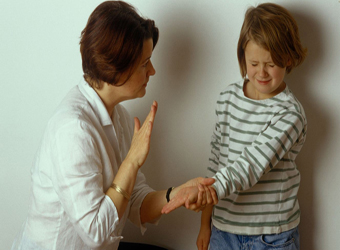Canadian researchers have found that people who were subjected to physical punishment as kids are more likely to experience depression, anxiety and disorders later in life.
The study, published in the journal Pediatrics on Monday, estimated that between two and seven percent of mental disorders in adults might be traced back in their childhood punishments, including pushing, grabbing, shoving, hitting and slapping. The study did not include severe forms of abuse.
“People believe that as long as you don’t cross that line into child maltreatment, and the physical punishment is controlled and doesn’t cross the line into abuse, it won’t have any negative long-term consequences for the child,” said study author Tracie Afifi of the University of Manitoba in Winnipeg.
“The way we see it is along a continuum of having no violence to severe violence,” Afifi added.
The researchers studied data collected by United States Census interviewers in 2004 and 2005, which involved some 35,000 US adults across the country.
The participants were asked about how often they were physically punished as kids, the problems that their families had and about the current or past symptoms of mental disorders.
It was then found that about six percent of the participants had been punished beyond spanking “sometimes,” “fairly often” or “very often.” And that those adults who had experience harsh physical punishment were more likely to have personality disorders or to abuse drugs and alcohol.
The researchers found that physical punishment may cause chronic stress in children that could then boost their chance of being diagnosed with depression or anxiety later in life.
“It is important for pediatricians and other health-care providers who work with children and parents to be aware of the link between physical punishment and mental disorders based on the study,” the study concluded.


